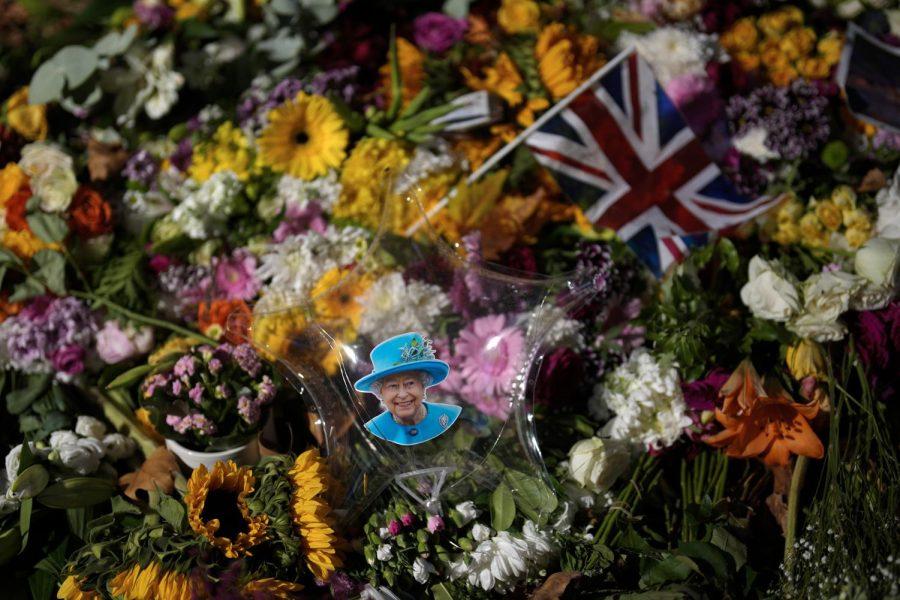Shock, justice and uncertainty: Pitt students react to Queen Elizabeth’s death
A balloon with a picture of Queen Elizabeth II and a British flag placed between flowers for the Queen at Green Park, near Buckingham Palace in London on Monday, Sept. 12, 2022.
September 12, 2022
For Janhavi Kulkarni, the news of Queen Elizabeth II’s death last week elicited strong emotions from her and her family members who are from India, a country that the British crown exploited and colonized for almost 100 years.
“I hurt for my grandparents, as they lived their formative years in an oppressed nation,” Kulkarni, a first-year psychology major, said. “You live and you learn, but you never forget the way you felt. Elizabeth’s legacy has made people feel fear, oppression and anger.”
The Queen’s death marks the end of a 70-year reign filled with controversy, and a heated debate over her legacy is underway. Pitt students offered differing opinions on the monarchy — some are mourning her loss, while others are taking the opportunity to question the value of the British monarchy.
“My opinions on the royal family as a whole are not particularly positive, but when the time did come of her passing, I was hit with quite a bit of sadness,” said Jess Vega, a sophomore law, criminal justice and society major from the U.K.
Shashank Kankati, a sophomore chemistry major, experienced a sense of detachment and lack of sympathy when the news broke.
“I wouldn’t say that I celebrated her passing, but I don’t believe that a monarch for one of the most brutal and violent empires of recent history should be particularly cherished,” Kankati said.
The Queen’s reign touched many people, especially people like Kulkarni and her family who experienced generational trauma associated with the monarchy. For many, the Queen was a figurehead for racism and colonialism that occurred before, during and after her reign.
“I think my family feels conflicted towards this news,” Kulkarni said. “The last living monarch who ruled India has passed away. India has moved past this moment in history.”
Vega noted a strong generational divide between older and younger people in the U.K.’s reactions to the Queen’s death. According to an Ipsos poll published in March 2022, older, more conservative British voters believe that the country would take a negative turn if the monarchy was abolished.
“While it’s something that we as a country and a younger generation will get over pretty quickly, I assume older generations will not — my nan was very upset,” Vega said. “But in regards to young people, we don’t really have that much remorse and are just hoping that Charles is not in power for long.”
Kankati said even though the Queen didn’t make the decisions to colonize and exert British power around the world, her position as a figurehead is still significant.
“Some may say that she herself did not actually do any of the colonizing, but I don’t really believe that matters,” Kankati said. “She still proudly stood by the government’s decisions and actions.”
Kulkarni said the Queen’s undertaking of such a prominent role in a time of national and global uncertainty should be acknowledged, despite the negative aspects associated with her reign. Kulkarni added that she respects that the Queen stepped into the monarchy at just 25 years old.
Vega also acknowledged the undeniable global legacy that she left after her 70-year reign.
“Her legacy will live on forever, in my opinion…she did a lot for our country and all the other countries in the Commonwealth,” Vega said.



